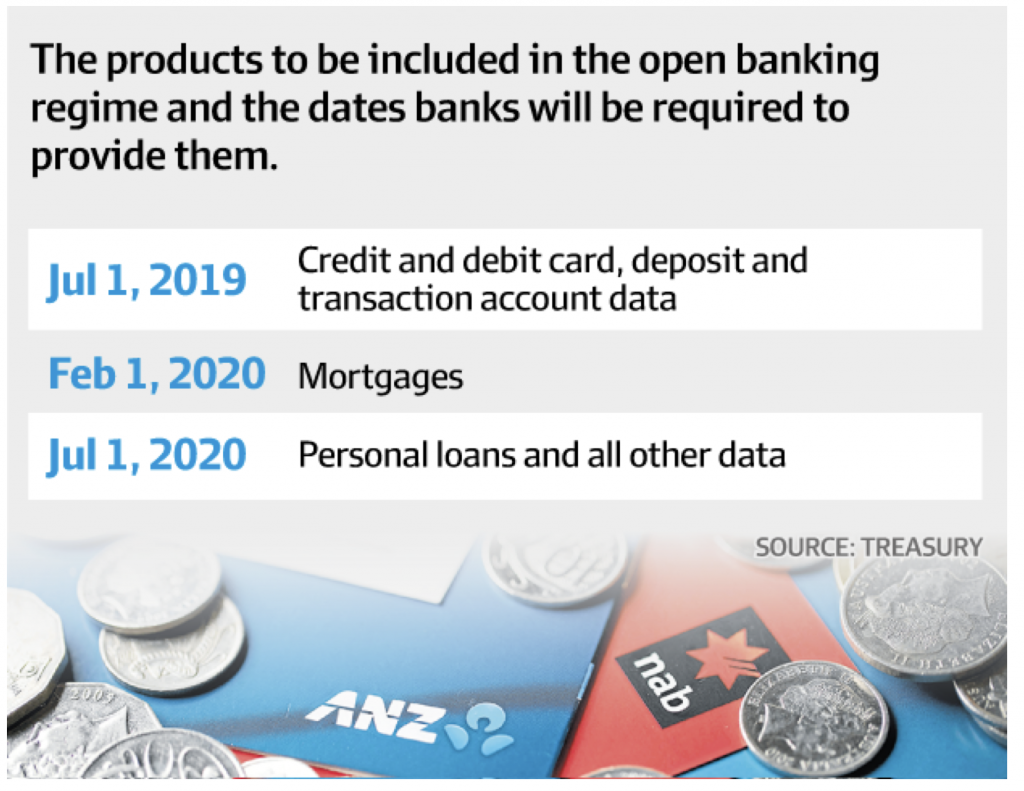
Could an open banking regime benefit robo advisers?
It’s hard to ignore the inroads being made by robo advice firms in the wealth management industry. Now, robo advisers could receive a further boost on the back of the upcoming open banking regime.
In the 2017-18 Budget, the Government agreed to some terms around an open banking regime in Australia. For those that are unaware, this essentially describes an initiative to give individuals (and businesses) access to their banking data history, upon their request.
In Scott Farrell’s words, Chairman to the Review, the initiative “gives customers a right to direct that the information they already share with their bank be safely shared with others they trust…resulting in more confidence in the use and value of an asset mostly undiscovered by customers – their data.”1
The regime follows a similar UK initiative, and will be rolled out across the big four banks over three different phases at the product level:
Source: Treasury/AFR
The power of big data is something that we are very familiar with at Montgomery, given the technology companies we own, such as Facebook, Google, and even REA Group. In the context of an opening banking regime, the initial inference is that individuals will now be able to use their data to gain more favourable access to financial products and services. However, a secondary consideration is how this data could be used by a third party from an innovation perspective.
Over the weekend in the AFR it was announced that a collaboration between two FinTech firms, Grow Super and Basiq, would seek to apply a new technology that would help financial advisers identify opportunities to more effectively engage prospective clients.2 Also, IOOF, which is the second largest financial planning network to AMP, will start to pilot this system in the future.
To clarify, people would need to first consent to their data being accessed by the system. The review further proposes 50 regulatory implications for banks around sharing such data. At a high level, once consent is provided, the data could be interpreted in a way which can trigger conversation points around life events where people traditionally seek advice, such as when they are buying their first home, or when they are looking to retire. Although this system will rely on algorithms to identify these conversations points, it will still need a human on the other end to engage the individual.
As prominent investor Chris Cuffe noted, “Financial services are sold not bought.”3 Technological developments to help better engage individuals to provide a service seem logical, particularly in the case of financial advice. Although artificial intelligence can assist in this process, I believe that for “high emotion” services, people will still value a person-to-person service.
You can read more about the open banking regime and regulatory framework here.
1. Source: Open Banking
2. Open banking rules fuel financial planning shake-up
3. My 10 biggest investment management lessons
The Montgomery Global Funds own shares in the Facebook, Google and REA. The Montgomery Funds own shares in REA. This article was prepared 10 July 2018 with the information we have today, and our view may change. It does not constitute formal advice or professional investment advice. If you wish to trade the Facebook, Google or REA. you should seek financial advice.
